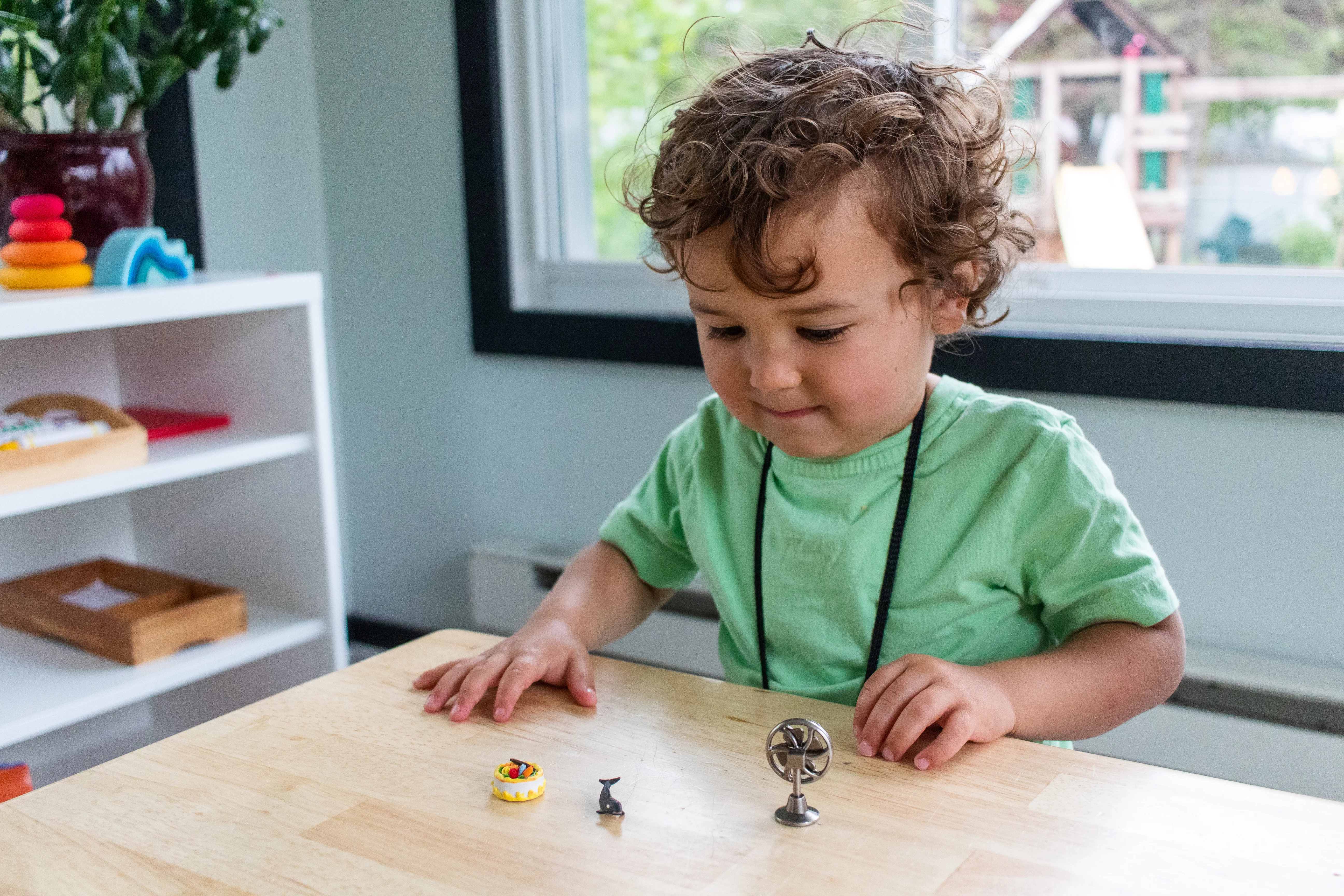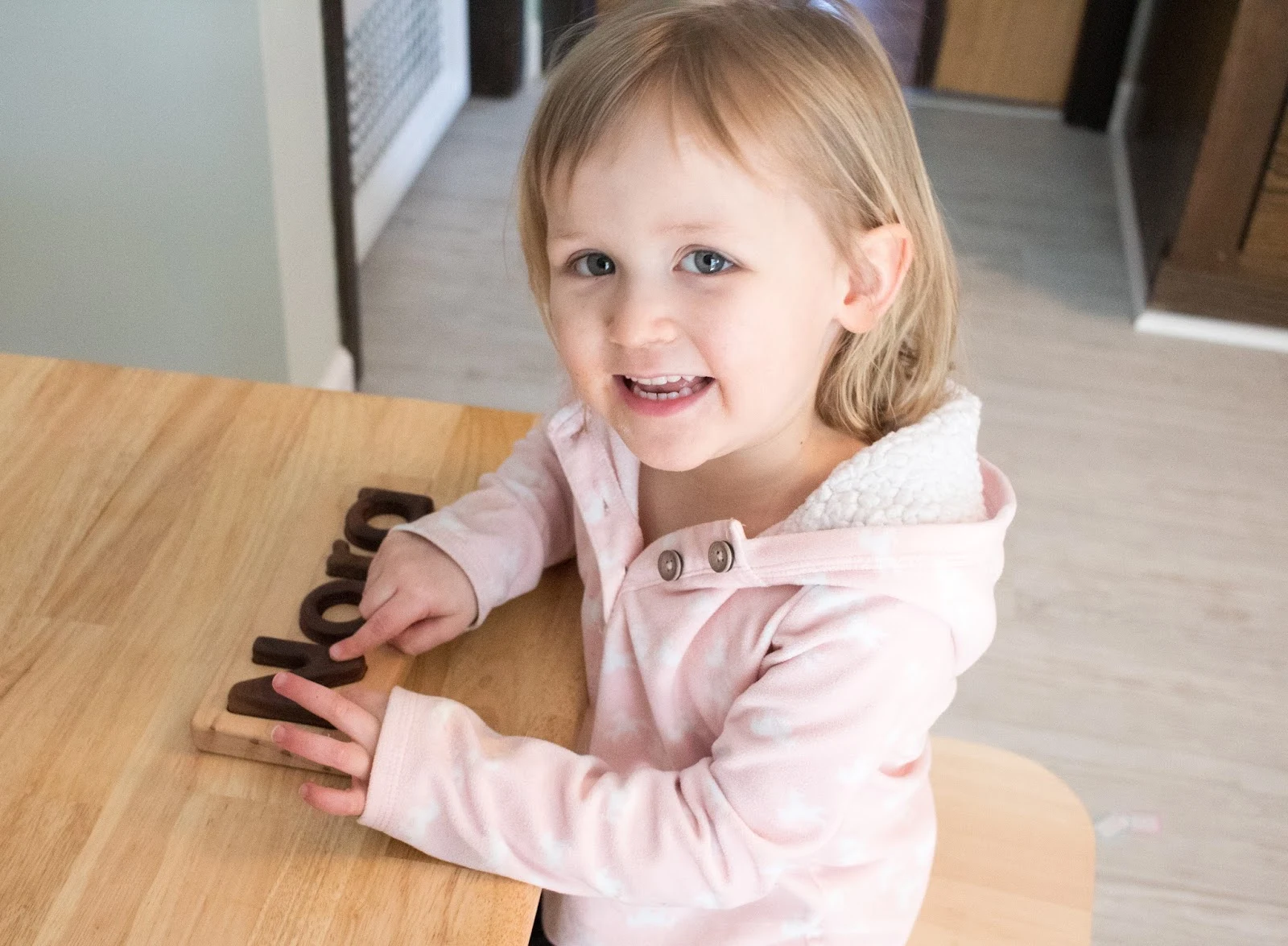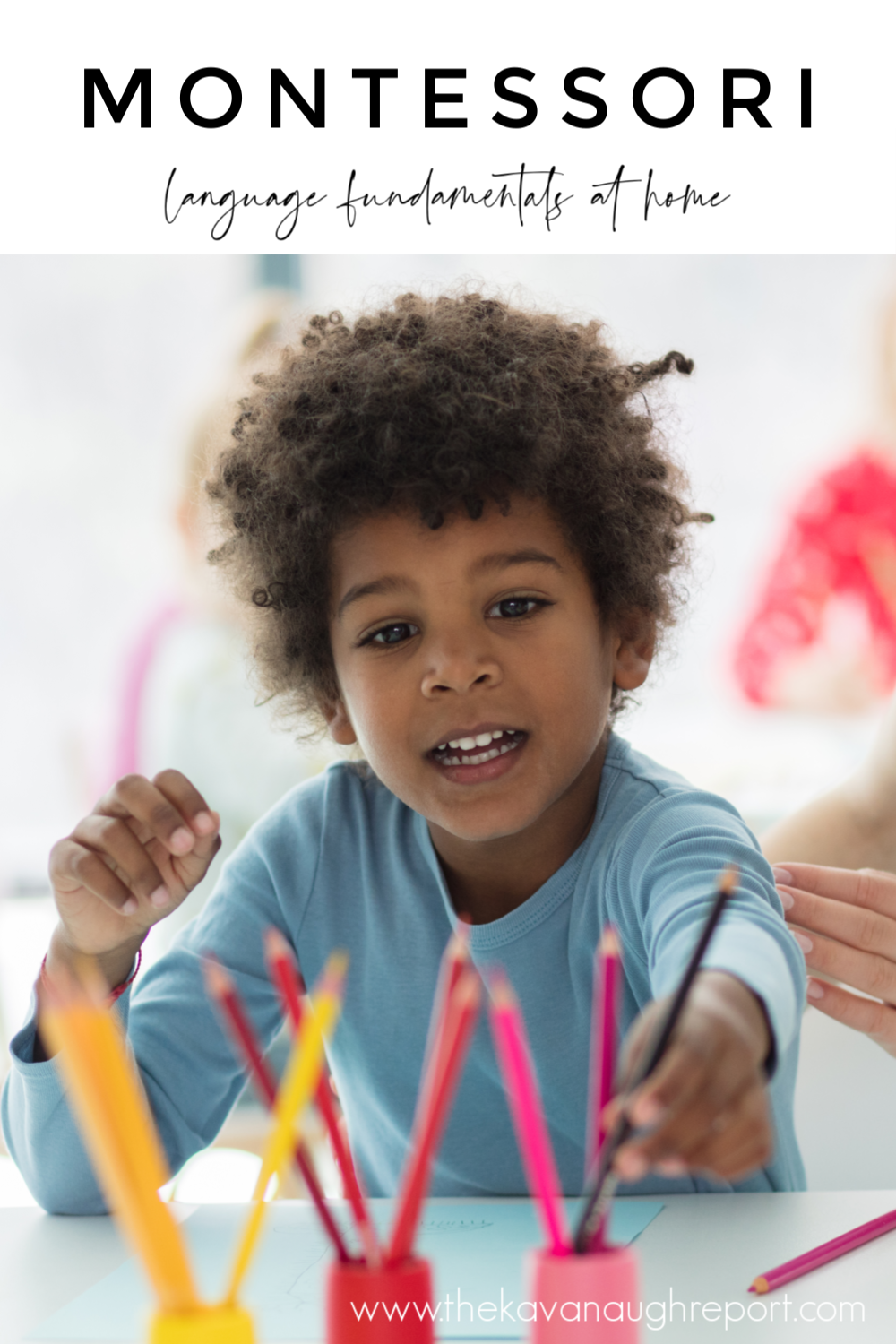Maria Montessori made so many amazing discoveries when it comes to the inner life of a child. And this includes some amazing insight into how children learn best. Even today, more than 100 years later, Dr. Montessori's method are being confirmed as best practices with current educational research. While I've often sung the praises of Montessori's approach to math, the approach to language is just as amazing.
Before I dive into exactly what we've done at home to support writing and reading development in my children, I wanted to write about some Montessori language fundamentals that inform the work we do with Gus and Nora. So here are a few things to keep in mind when it comes to the Montessori approach to learning to read and write.
Read Part 1 of this language series: Pincer Grip - Preparing for Language Work
It Comes Early, but not That Early
In today's world there can be significant pressure to make sure toddler's are "learning" enough. It can lead parents and caregivers to want to introduce academic concepts earlier and earlier to help their child stay ahead of perceived academic expectations. So, I just want to say the type of language work I'm talking about here is not typically meant for toddlers. While there may be a few exceptions to the rule, the Montessori sensitive periods for reading and writing both start around age 3 and continue through the preschool years.
Being in the sensitive period for language, toddlers have other really important work to do which sets the foundation for this other more academic work to come with ease and joy, later on.
It Doesn't Happen in a Vacuum
Another important point to keep in mind is that this doesn't happen independently of other learning. Like I talked about in part 1 of this series, children are constantly preparing their hand for this kind of work. But through other materials in the environment, they are also preparing their ear for this kind of work. Gross motor movement also helps to prepare their bodies for this work. This work is JUST as important. In a classroom readiness for language work comes from practical life materials and the sensorial materials as much as it comes from the formal language work - the same is true at home.
In other words, the work is interconnected. Don't feel stressed if your child would rather color than work on sound games, or needs to move constantly instead of sitting down to read. Children are constantly perfecting themselves and they know best what they need.
Writing Comes First
One of the unique parts of the Montessori language work is that writing actually comes first! Dr. Montessori found that children were much more interested in sharing their own ideas via writing than they were reading someone else's. And, that it was through the process of interpreting what they had written that reading skills begin to emerge.
"Writing using this model appears to be closer to spoken language than to reading, and more immediately accessible. From a child's point of view, listening to the sounds she hears in her head and working out which letter she will need for each sound requires only a little additional knowledge." Lynne Lawrence, Montessori Read and Write (This book is the best, but out of print so hard to find reasonably priced)
It Comes from Sounds
The Montessori approach focuses completely on sounds! It isn't until much later (Nora learned in kindergarten after starting to read) that letter names are even introduced. By knowing the sounds associated with each letter, the entire process becomes easier. As Montessori said, "Actually, writing prepares a child for interpreting mechanically the combined sounds of the letters which compose the word he sees written. In other words, a child can read the sounds of the words." (The Discovery of the Child)
How cool is that! If children know the sounds, they read and write with ease because they are essentially playing with the sounds that have been introduced. So, at home, skip the ABC song, skip letter names, and start playing with letter sounds.
Keep it Concrete and Fun
As with everything in Montessori we want to keep things concrete for the child and fun. This is not meant to be a process of drilling our child with abstract concepts. It's following their interest through connection with our child. Where you can, use concrete materials to support learning (like language objects.) Learn through movement, allow and accept movement. And, play games! I will get into sound games in my next post, but most of this learning should come from you and your child playing and being together - fun and naturally.
The Goal is Support
Finally, the goal is not to create little 3-year-old super readers. The goal is not for your child to get ahead. The goal is to SUPPORT the interest, skill, and readiness of your own child. One thing that Maria Montessori said that really has stuck with me is, "Not all children reach the same standard of achievement at the same age. Since none of them are ever encouraged, much less forced, to do something that they do not care to do, it happens that some children, since they have never asked for help in learning, have been left in peace and can neither read nor write." (The Discovery of the Child)
What she's saying here is that the role of Children's House/Primary (3-6y) environments are not to force learning but to allow a child to move through where they need to be. If a child never feels called to that work (or isn't ready for that work) until later, that's ok. We aren't going to force it, we are going to support the child where they are in this moment.





